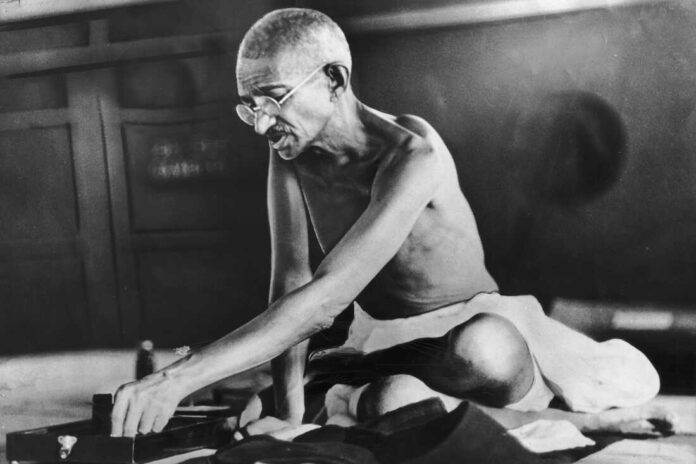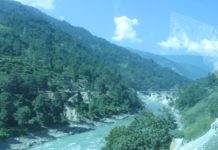The man of honesty
The man of Greatness
He is our Mahatma
The father of our nation!
Outline :-
1) Introduction
2) Mahatma Gandhi’s role in the freedom struggle
3) Major Movements by Mahatma Gandhi- Champianand Kheda Satyagraha- Non -Cooperation Movement- Civil disobedience Movement- Dandi yatra- Mahatma Gandhi’s Quit India Movement
4) Conclusion
INTRODUCTION :-
Born on October 2, 1869, in Porbandar, Gujarat, the sacrifice and dedication made by Mahatma Gandhi to the nation can never be forgotten.He was a great man, who devoted his entire life to liberate the country from the shackles of slavery. Gandhi’s great and influential personality affects everyone.
MAHATMA GANDHI’S ROLE IN THE FREEDOM STRUGGLE:
“Freedom is never dear at any price. It is the breath of life. What would a man not pay for living?” – Mahatma Gandhi.
After all the struggles against separatism in South Africa, when he returned to his home country, he saw that the brutal British rule was doing inhuman atrocities on innocent Indians and the people of the country were suffering from poverty and hunger.After which he pledged to throw the cruel British out of India and then rushed into the freedom struggle with his determined and steadfast goal of attaining independence.
MAJOR MOVEMENTS BY MAHATMA GANDHI:
During the freedom struggle, Mahatma Gandhiji started many big movements against the British, following the path of truth and non-violence. His peacefully organized movements not only weakened the foundations of the British government in India but also forced him to leave India. Some of the main movements run by him are as follows:
CHAMPARAN AND KHEDA SATYAGRAHA:
In the year 1917, when the British were exploiting the farmers of Champaran under their oppressive policies, some farmers were not able to pay much tax. Due to which terrible conditions like poverty and hunger had arisen, in view of which Gandhiji started the Champaran movement in a peaceful manner against the British, as a result of this movement he was able to get back about 25 percent of the amount of money to the farmers. In the year 1918, due to the severe floods in Kheda of Gujarat, the farmers were unable to pay a heavy tax to the British. Seeing this, Gandhiji started a non-violent agitation against the British, demanding the farmers to waive their rent, after which the British rule had to accept their demands and the farmers there had to be exempted from tax. This movement of Mahatma Gandhi is also known as Kheda Satyagraha movement.
NON-COOPERATION MOVEMENT:
Gandhiji was deeply saddened by the oppressive policies of the British and the innocent people killed in the Jallianwala Bagh massacre. The flame of liberating the country from the atrocities of the British was intensified in his heart. Due to this, he decided to launch a non-cooperation movement against the British. Under this movement, he appealed to the Indian public not to support British rule. In this movement of Gandhiji, Indians supported on a large scale and started resigning from posts under the British government, such as teachers, administrative system and other government posts, as well as fiercely boycotting government schools, colleges and government institutions. During this time people burned the foreign cloth and started adopting Khadi garments and native items. Gandhi’s non-cooperation movement weakened the foundation of British rule in India.
CIVIL DISOBEDIENCE MOVEMENT / DANDI YATRA / SALT SATYAGRAHA (1930):
Mahatma Gandhi launched this movement against the oppressive policies of the British government. He traveled to violate the salt law of the British government.Gandhiji started from Sabarmati Ashram on 12 March 1930 with some of his followers.After this, on April 6, Gandhi reached Dandi and violated the salt law of the British Government by making salt along the sea.Under the Salt Satyagraha, the Indian people went against the orders of the British Government and started making and selling salt themselves.This nonviolent movement of Gandhiji weakened the British government and the path of liberating India from the clutches of the British were cleared and strengthened.
MAHATMA GANDHI’S QUIT INDIA MOVEMENT (1942):
Mahatma Gandhi started the “Quit India Movement” against British rule in the year 1942 with the aim of driving the British out of India. A few years after this movement, India was free from the British rulers. Let me tell you that when Gandhiji started this movement, it was the time of the Second World War and Britain was already engaged in war with Germany, Bapu took advantage of such a situation. In this movement of Gandhiji, the people of India gathered on a large scale and gave their support. The movement had such an impact that the British government had to promise independence to India. The movement thus proved to be the last nail in the coffin of British rule in India. In this way, the movements launched by Mahatma Gandhi on the path of truth and non-violence played an important role in liberating slave India and left a deep impact in everyone’s life. At the same time, the special thing about his movements was that he started the movement in a very peaceful manner and his movements were canceled in the midst of any violent acts during the movement. “An error does not become truth by reason of multiplied propagation, nor does truth become error because nobody sees it. Truth stands, even if there is no public support. It is self sustained.”
CONCLUSION :-
Everyone needs to take inspiration from the way Mahatma Gandhiji has completely dedicated himself to the nation and big movements to get freedom for the country. At the same time, as the violence activities are increasing today, there is a need to spread the great ideas of Gandhi to the people, only then the violence in the country will be reduced, the country can move forward on the path of progress. However, the contribution made by ‘Mahatma Gandhi‘ to the nation can never be forgotten. It is a matter of pride that a person like Mahatma Gandhi was born in India.
By: Isotiya Juli Maheshbhai
Write and Win: Participate in Creative writing Contest & International Essay Contest and win fabulous prizes.











